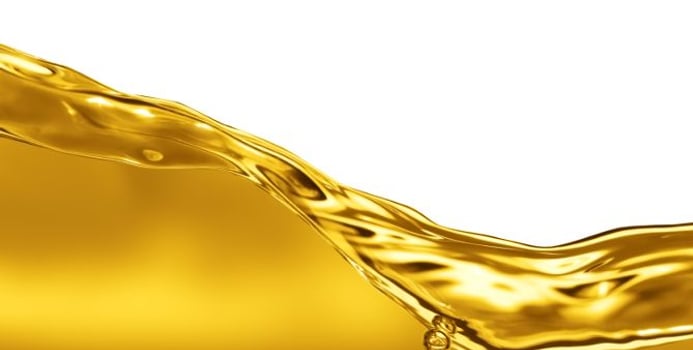Corn oil or maize oil is a yellow-golden liquid with a pleasant taste. It is a refined vegetable oil obtained from the maize kernel. Maize is widely used all over the globe as a staple food. The vegetable oil is a popular choice for frying various foods. It is favored over most other oils because it doesn't smoke or discolor. Maize oil is a rich source of omega-6 fatty acids, phytosterols and tocopherols.
Omega-6 Fatty Acids
These essential fatty acids (EFAs) cannot be manufactured by the body. They function together with omega-3 fatty acids to enable various functions in the body. Omega-6 fatty acids are also referred to as linoleic acids. They enable normal growth and development in the body. They also sustain optimal brain performance, regulate reproductive functions and enhance bone health. EFAs relieve the pain associated with rheumatoid arthritis. They play a role in skin health since they help to manage eczema and acne. Transmission of nerve impulses are facilitated by EFAs. Research studies have also established a close link between EFAs and improved cardiovascular health. They reduce bad cholesterol levels in the blood but improve good cholesterol levels. They also help to normalize blood pressure. This bears positively on heart health because EFAs reduce the risk of stroke and heart disease. However, research studies have shown that excessive intake of omega-6 fatty acids increases certain health risks. The likelihood of breast cancer in postmenopausal women increases with high intakes of omega-6. It also increases the probability of prostrate cancer and depression.
Phytosterols
These potent chemical compounds are found in plants. Phytosterols are also known as plant sterols. These compounds have the capacity to lower cholesterol. Maize oil contains one of the highest levels of phytosterols amongst refined vegetable oils. Phytosterols inhibit absorption of cholesterol from the intestines. This helps to reduce overall blood cholesterol levels. Sterols also inhibit the production of cholesterol in the liver. It has been established that moderate intake of sterols can reduce cholesterol by up to 15 percent. This improves cardiovascular health. It also lowers the risk for stroke and cardiovascular disease. Research has shown that foods that contain sterols can help fight coronary disease. Sterols have also been found to be beneficial in cancer prevention. They lower the risk for breast, colon and prostrate cancers. Even in confirmed cancer cases, sterols have been found helpful because they inhibit the growth of tumors.
Tocopherols
These nutrients belong to the vitamin E family which has various antioxidant functions in the body. Tocopherols sustain metabolism and boost the immune system. They inhibit the formation of carcinogens in the stomach which supports metabolic activity. Tocopherols protect cells from the harmful effects of free radicals. These radicals result from metabolic activity. They damage healthy cells which increases the risk of cardiovascular disease and cancer. Tocopherols also help to prevent blood clots. Blood clots have been cited as a major cause of heart attack. Studies have confirmed that a high intake of vitamin E lowers the risk for heart related diseases. Tocopherols also help to prevent growth of cataracts in the eyes and help to improve lens clarity.



